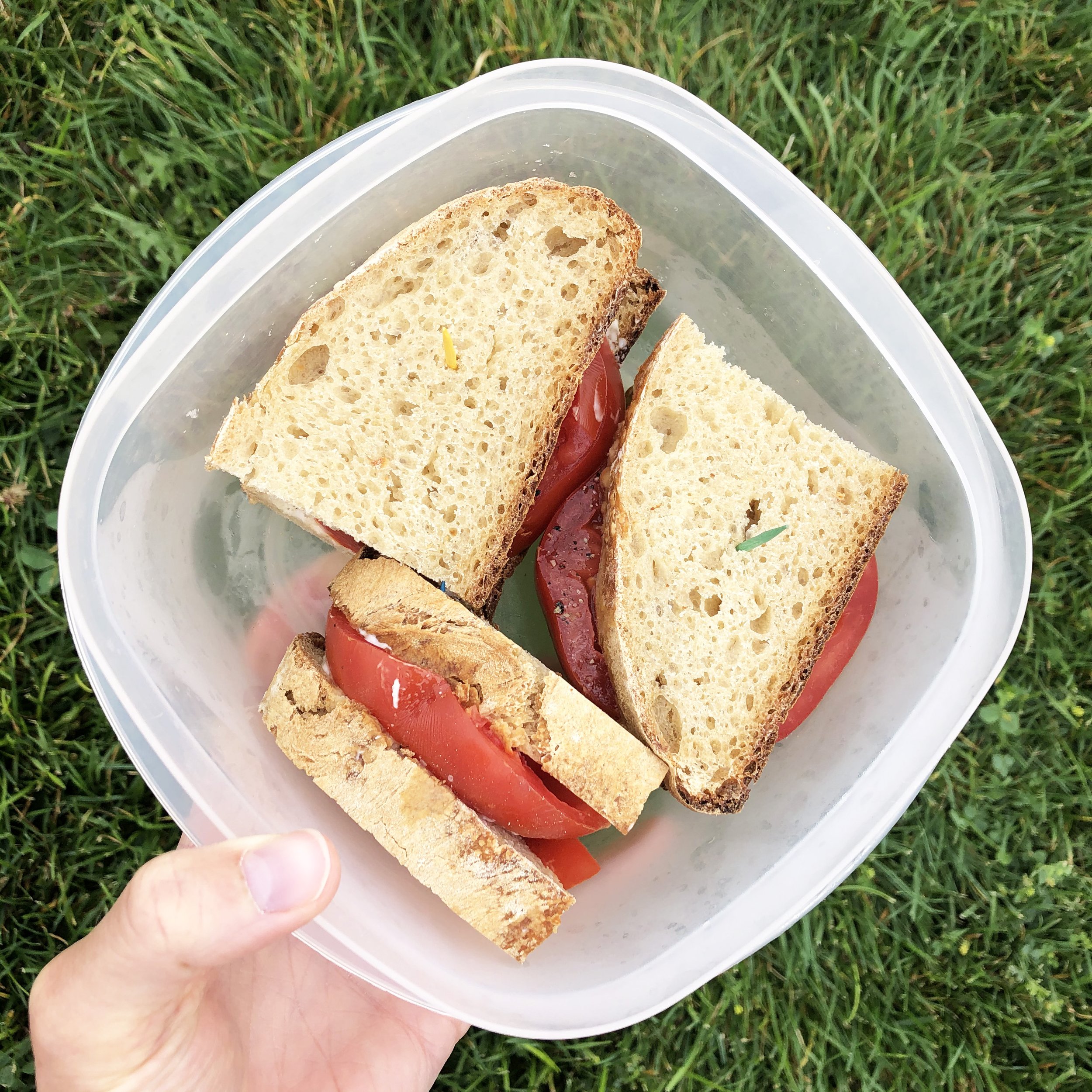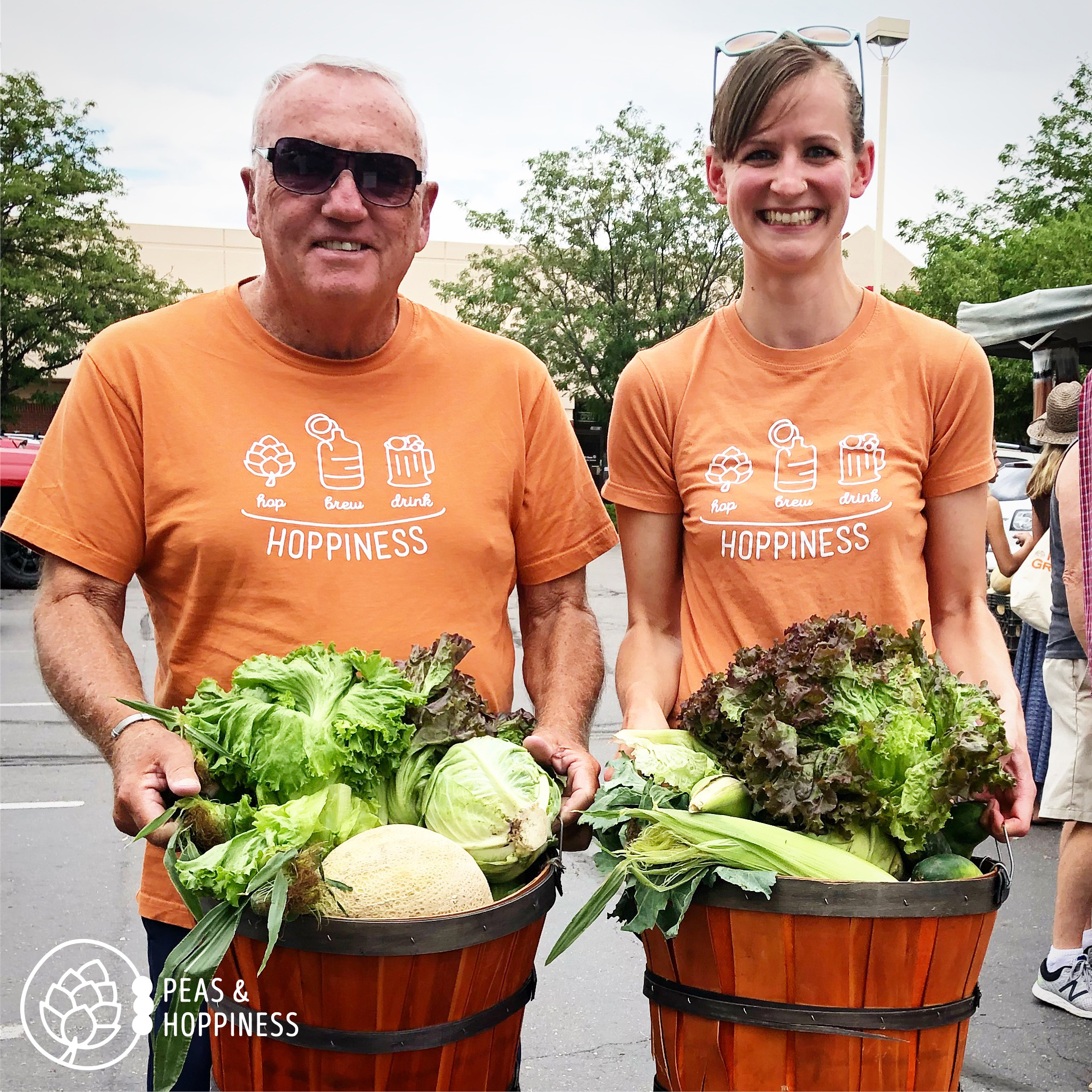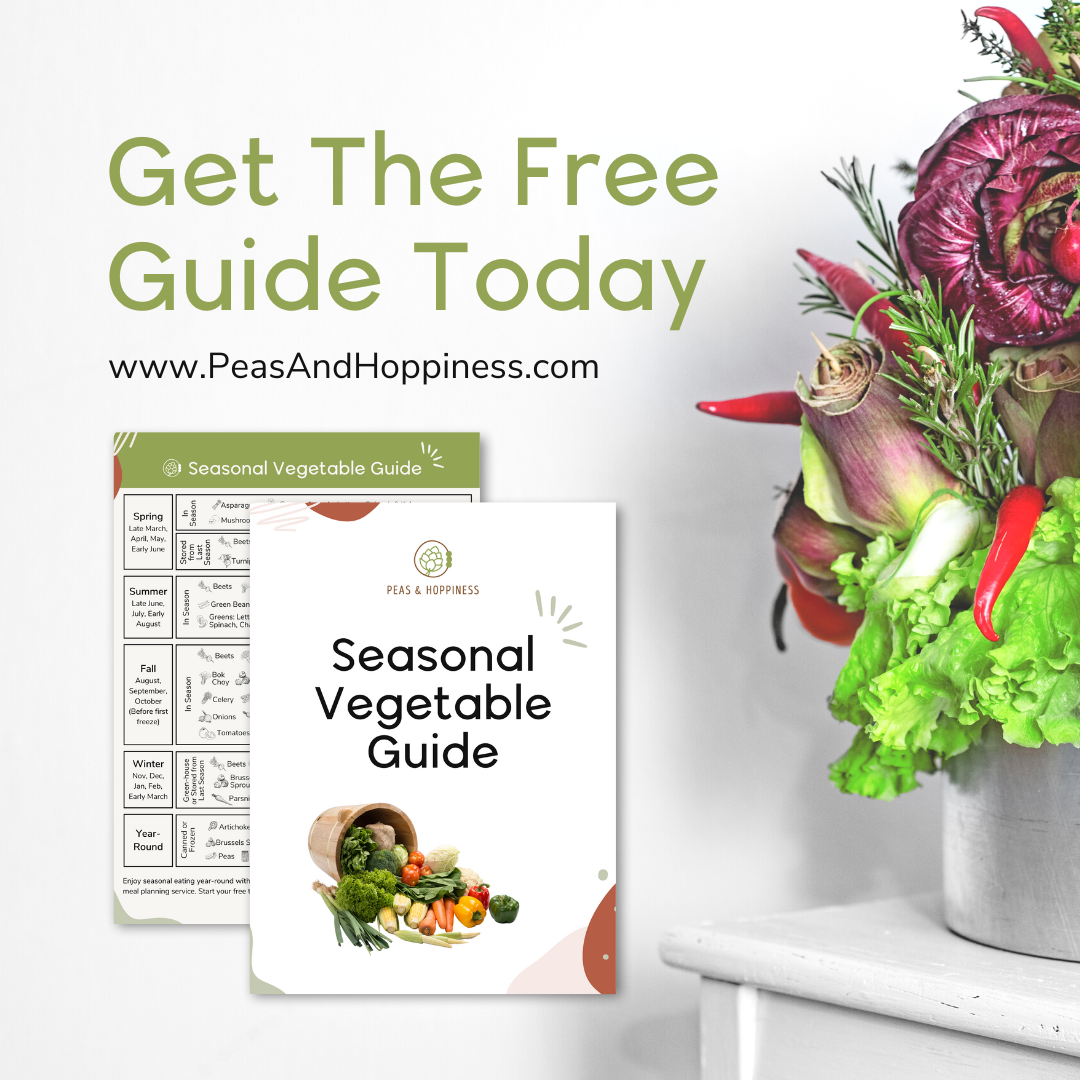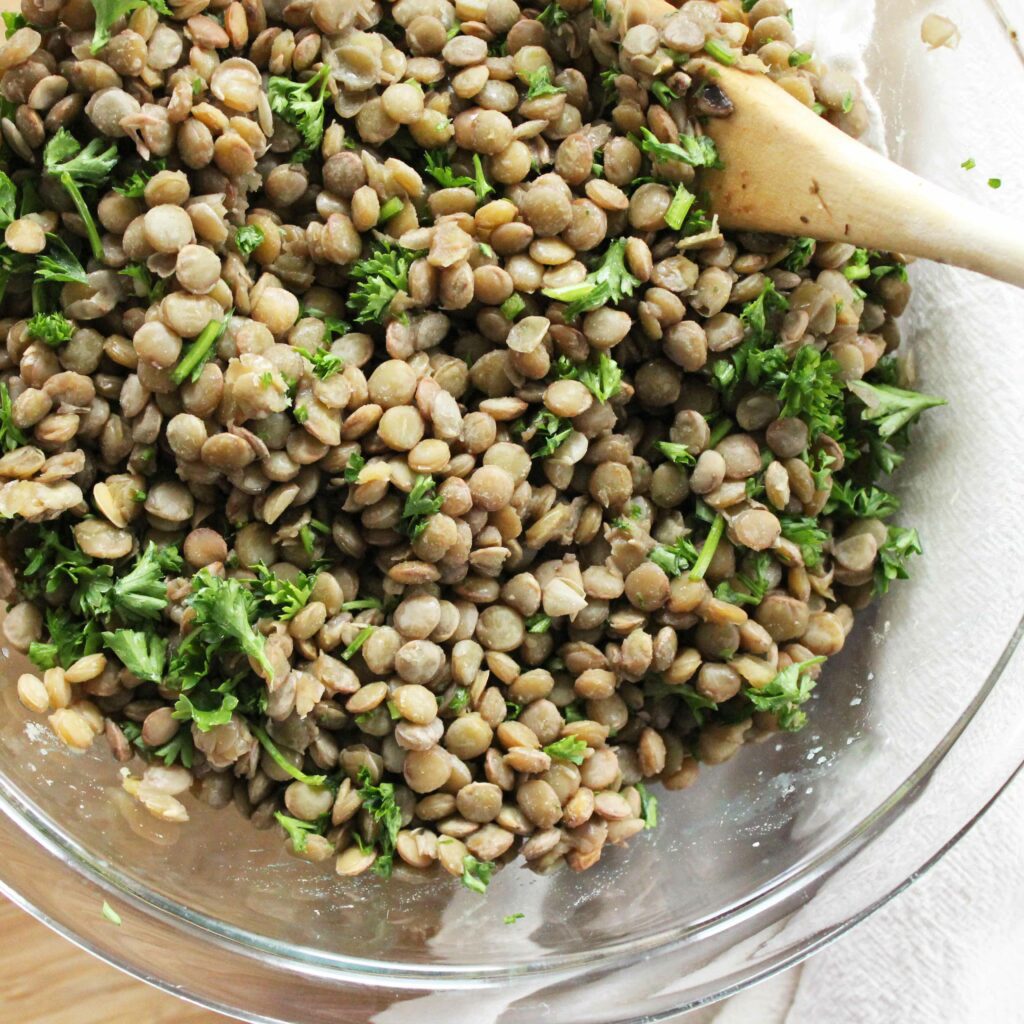Why should you eat seasonal fruits and vegetables? Eating seasonally saves money at the grocery store. Seasonal produce tastes better and is more nutritious. You can also be more eco-friendly and support your local economy.

“It’s soup season!” you exclaim as you gather up the sunscreen and pack swimming towels into the bag, getting ready to head outside to the neighborhood pool.
Just kidding – even the thought of enjoying a bowl of soup poolside sounds like the beginning of a dystopian novel.
Even if you haven’t done so intentionally, you likely enjoy some form of seasonal eating: stews in the winter, salads in the spring, grilling out in the summer.
The benefits of seasonal eating go beyond the comfort of a warm bowl on a snowy day. Learn how eating seasonal fruits and vegetables can benefit you, your budget, and the planet.
What Does it Mean to Eat Seasonally?
 To eat seasonally means to choose foods which naturally become ripe during each period of the year. Eating seasonally could also mean choosing foods which are stored from the last season.
To eat seasonally means to choose foods which naturally become ripe during each period of the year. Eating seasonally could also mean choosing foods which are stored from the last season.
In most parts of the world, the year is divided into seasons: spring, summer, fall, and winter – each with its unique temperatures and rainfall patterns. Those patterns determine the growing seasons of different crops.
Different crops are planted at different times of the year, grow in different types of ideal conditions, and are then harvested in different seasons.
For example, tomatoes are a warm weather crop. Plants are often started from seed indoors in late winter and then the sprouts are transplanted once the last freeze of the season has passed. Most tomatoes grow best in hot, humid weather and fruits don’t ripen until late July or August. This means that tomatoes are a late summer or early fall seasonal vegetable.
So how is it you can buy a tomato in January when there’s snow on the ground?
These tomatoes have either been grown in a greenhouse or have been grown in a warmer climate and then shipped to your local grocery store – sometimes from half-way across the world.
Because of these natural planetary rhythms, choosing to eat seasonally is better for you, your budget, and the planet.
Reason #1 to Eat Seasonally: Save Money by Eating Seasonal Produce
What’s on sale is in season!
Eating produce when it’s in season can save you money at the grocery store. It’s a simple metric of supply and demand: when produce is plentiful near you, it will be less expensive.
Did pear farmers just pick thousands of pears? Watch and they’ll be on sale – they have a shelf life and won’t be good forever!
Reason #2 to Eat Seasonally: Seasonal Fruits and Vegetables have Better Taste & Flavor
As produce ripens, it becomes more tasty – reaching a peak of flavor and nutrition – and then it starts to go downhill and eventually spoils. The ideal time to pick the vegetable from the vine is when it’s as close to that peak as possible.
If produce is picked too late, it will spoil very quickly.
If produce is picked too early, it won’t ever reach its full potential. This is what happens when produce is picked from very far away because it must survive the long shipping process. Produce continues to ripen even after its picked, but not in the same way it does when it’s still on the vine.
For the tastiest produce, pluck that tomato from the vine only once it’s fully ripe.
Reason #3 to Eat Seasonally: Eating Seasonally is Better for Health & Nutrition
 In terms of nutrition, the best time to pick a vegetable from the vine is when it’s as close to perfectly ripe as possible. As the vegetable grows, it creates and produces all its wonderful nutritive properties, getting better and better until it reaches perfection.
In terms of nutrition, the best time to pick a vegetable from the vine is when it’s as close to perfectly ripe as possible. As the vegetable grows, it creates and produces all its wonderful nutritive properties, getting better and better until it reaches perfection.
After the “peak” ripeness, the fruit or vegetable starts to lose some of its nutritional value as it begins to spoil.
When produce is picked too early, it never reaches its full nutritional potential. As soon as it’s picked, the nutrients also begin to degrade. This means out-of-season produce shipped from half a world away are both picked before they reach their full potential AND the vitamins and antioxidants deteriorate during the long shipping time.
Of course, eating a vegetable is always better than not eating a vegetable. You still enjoy benefits from out-of-season produce, but for the best quality, taste, and nutrition choose produce from a local farm when it’s in season.
Reason #4 to Eat Seasonally: Support Local Farmers & the Economy by Eating Seasonally
 Some produce simply isn’t available year-round in most areas of the world. Thus, when you commit to eating seasonally, you’re able to buy local produce and support local farmers.
Some produce simply isn’t available year-round in most areas of the world. Thus, when you commit to eating seasonally, you’re able to buy local produce and support local farmers.
Did you know that for every $100 spent, local business will re-circulate about $45 into the local area while large corporations will only re-circulate about $14?
By supporting a local farmer, you not only support someone’s dream, but you’re also supporting real jobs in your community. Those dollars you spend will benefit your community over and over again.
Reason #5 to Eat Seasonally: Seasonal Eating is Better for the Planet
Seasonal eating has a minimal impact on the environment compared to changes such as reducing intake of animal protein, but every little bit helps.
When you eat seasonally, you can feel good doing your part in reducing greenhouse gas emissions from transportation, especially if produce is shipped via airline. You also help reduce farming inputs like fertilizer and water for out-of-season produce.
Eating Seasonally Makes Sense
Eating seasonally just makes sense. A warm bowl of Butternut Squash Soup sounds delicious when snow is on the grown outside. However, a lovely Strawberry Mango Spinach Salad feels refreshing as spring turns to summer.
Make sure to grab this FREE Guide to Seasonal Vegetables so you always know what’s in season and what’s coming up next.
Remember: it’s okay to do what you can – you don’t have to be perfect! Just keep this guide handy as you’re planning your weekly menu. Start by incorporating one or two of the veggies you see on the list.
Happy seasonal eating!
Dietitian Ann from Peas and Hoppiness
Seasonal & Plant-Based
The Peas & Hoppy Meal Guides customizable meal planning menus are planned seasonally based on the produce available throughout the year. They help you support local farmers and get more in touch with where your food comes from.
Start your free trial today and gain immediate access to this week’s menu PLUS over 800 dietitian-approved recipes in our user-friendly mobile app.
“Before the Meal Guides I was struggling with having variety in my meal planning and not many vegetarian options. We eat a lot more fish & vegetarian entrees now which are a great addition to our previous meat & potatoes fare.”
– Margaret S., Member of the Peas & Hoppy Meal Guides
